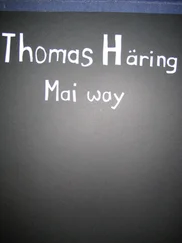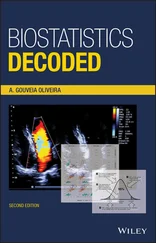Mai Jia - Decoded
Здесь есть возможность читать онлайн «Mai Jia - Decoded» весь текст электронной книги совершенно бесплатно (целиком полную версию без сокращений). В некоторых случаях можно слушать аудио, скачать через торрент в формате fb2 и присутствует краткое содержание. Год выпуска: 2014, Издательство: Allen Lane, Жанр: Современная проза, на английском языке. Описание произведения, (предисловие) а так же отзывы посетителей доступны на портале библиотеки ЛибКат.
- Название:Decoded
- Автор:
- Издательство:Allen Lane
- Жанр:
- Год:2014
- ISBN:нет данных
- Рейтинг книги:3 / 5. Голосов: 1
-
Избранное:Добавить в избранное
- Отзывы:
-
Ваша оценка:
- 60
- 1
- 2
- 3
- 4
- 5
Decoded: краткое содержание, описание и аннотация
Предлагаем к чтению аннотацию, описание, краткое содержание или предисловие (зависит от того, что написал сам автор книги «Decoded»). Если вы не нашли необходимую информацию о книге — напишите в комментариях, мы постараемся отыскать её.
Decoded — читать онлайн бесплатно полную книгу (весь текст) целиком
Ниже представлен текст книги, разбитый по страницам. Система сохранения места последней прочитанной страницы, позволяет с удобством читать онлайн бесплатно книгу «Decoded», без необходимости каждый раз заново искать на чём Вы остановились. Поставьте закладку, и сможете в любой момент перейти на страницу, на которой закончили чтение.
Интервал:
Закладка:
The young Jan Liseiwicz then piped up: ‘I have heard that you are regarded as the world’s finest amateur chess player. How about we play a game? If I win, surely I should be allowed to attend the university without having to take the entrance examinations?’
Steinroder replied sternly, ‘I am happy to play a game with you, but let me make it clear — you have demanded a great favour from me if you win. I am happy to oblige, but in return I am going to ask something of you if you lose. In this way the game will be fair. If you do not agree, then I decline to play.’
‘Tell me what you want me to do,’ Jan responded.
‘If you lose,’ the mathematician said, ‘you can never apply to attend Cambridge University.’
He was hoping to scare Jan off, but the only person who got frightened was the boy’s father. A storm of protest from Mr Liseiwicz senior made his son somewhat hesitant, but in the end he said confidently, ‘Fine!’
Surrounded by onlookers, the pair of them began to move their chess pieces, but within less than half an hour, Steinroder got up from the table and said with a laugh to Mr Liseiwicz: ‘Bring your son to Cambridge next year.’
Mr Liseiwicz said, ‘You haven’t finished the game yet.’
The mathematician said, ‘Do you really think I can’t tell when I am beaten?’ Turning back, he asked young Jan: ‘Do you think you can beat me?’
The boy replied, ‘Right now I only have a thirty per cent chance of victory; you have a seventy per cent chance.’
The mathematician said, ‘You are absolutely right. On the other hand, because you have realized that, there is at least a sixty to seventy per cent chance that you could force me to make a mistake. You have done very well and I hope to play many more games of chess with you when you come to Cambridge.’
Ten years later, Jan Liseiwicz (then aged just twenty-four) was listed by the Austrian journal Monatshefte für Mathematik as one of the rising stars in the world of mathematics. The following year he won the highest prize offered in international mathematics: the Fields Medal. People call this the equivalent of the Nobel Prize for Mathematics, but in fact it is much harder to achieve, for the Nobel Prize is offered every single year while the Fields Medal is only awarded once every four years.
One of Liseiwicz’s fellow students at Cambridge was a young woman who belonged to one of the junior branches of the Austrian imperial family. She fell madly in love with this young winner of the Fields Medal, but he remained completely indifferent to her. One day, the young woman’s father came to see Liseiwicz — naturally this was not in the hope that he would marry his daughter, but because he wanted to discuss his ideas for improving the state of mathematical knowledge in Austria. He asked the young man if he was prepared to help him achieve this ambition. Liseiwicz asked him what exactly he had in mind, and he said, ‘I will put up the money. You find suitable people. We ought to be able to put together a nice research institute.’
‘How much money are you prepared to invest in this?’ Liseiwicz asked.
‘Tell me how much you need.’
Liseiwicz thought about it for two weeks and worked out a mathematical formula for calculating the benefits to his own future career and for the field as a whole. The result was that going to Austria won over staying in Cambridge, no matter what number he looked at.
So he went to Austria.
A lot of people thought that he went to Austria at the behest of two people — one was the rich father and the other the besotted daughter. Some people imagined that this lucky young man would marry the girl and massively advance his career at one fell swoop. However, in practice the only thing that happened was that he advanced his career. He used the Hapsburg prince’s inexhaustible resources to create the finest mathematical research institute in Austria and gathered many excellent mathematicians under his banner — eventually the young woman who had been so desperate to marry him found a replacement from among their number. There was much gossip at the time that he was homosexual, and some of his actions did indeed seem to give credence to the rumours: for example, he never employed a woman in his research institute — even the secretaries and support staff were all male. Furthermore, when newspapers required an interview with him, they quickly learned to send a male reporter. As a matter of fact, more women reporters went to interview him than men, but they came back empty-handed; although this was probably more the result of his secretive nature than anything else. [Transcript of the interview with Master Rong]
Jan Liseiwicz came to N University as a visiting scholar in the spring of 1938 — I imagine that he was headhunting. Of course, he was not expecting that such earth-shattering events would occur over the next couple of weeks. When he heard that Hitler had invaded Austria, he had no choice but to stay on at N University, at least until the situation in Europe became clearer. While he was waiting, he received a letter from a friend in the United States, informing him that the situation in Europe was truly appalling. The Nazi flag was already on the march through Austria, Czechoslovakia, Hungary and Poland, and Jewish people were being forced to flee. Those who did not leave in time were being rounded up and placed in camps. It was then that he realized that there was now nowhere to go and that he was stuck with us for the foreseeable future. He took up the position of professor of mathematics here, but he was still waiting for an opportunity to get to America. It was during this time that his personality (or perhaps it was his body) underwent a mysterious and unexpected change — almost overnight he began to experience an overwhelming attraction to the young women at the university. This was apparently something that had never happened to him before. He seemed like a strange tree that puts out different flowers when it is planted in different places, which then mature into different kinds of fruit. His decision to go to the United States was swamped by this new interest in the opposite sex, and two years later he married a young instructor from the physics department — he was forty years old at the time and she was a good fourteen years younger. This delayed his plan of going to the United States yet again, and he did not come back to the idea for another decade.
Everyone involved in the world of mathematics realized that after Jan Liseiwicz went to China he changed a great deal, becoming a wonderful husband and father, but less and less of an original and creative mathematician. Perhaps his remarkable talents were intrinsically bound up in his undomesticated existence; and thus once he married his genius deserted him. The fact is that if anyone had thought to ask him, he would have been hard put to answer whether his actions had destroyed his talent, or whether it had just vanished of its own accord. As any mathematician could tell you, before Jan Liseiwicz went to China, he wrote twenty-seven papers which were greeted with international acclaim, but afterwards he did not write even one. On the other hand, it was during this time that his sons and daughters were born. It was as if his genius vanished in a woman’s embrace, only to transform itself into a succession of adorable babies. Looking at what happened to him, people came to believe that there might be something in the old adage about how east is east and west is west and never the twain shall meet. For such a strange man to change in such a mysterious way, in such a profound way, was really quite unbelievable. At the time no one realized quite what was going on, but we all saw the results.
Of course, though he might have lost one part of his genius, Jan Liseiwicz remained a truly remarkable teacher. You could say that while he became less and less of an original, creative mathematician, he had transformed himself into a professional and highly respected instructor. Liseiwicz taught at the mathematics department in N University for eleven years, and the chance to become one of his students was unquestionably a great honour and a wonderful beginning to any mathematician’s career. To give you just one example: of the handful of students of N University who have achieved international recognition in their field, more than half were his students during his eleven years there. Of course, being one of his students was no sinecure. First, you had to be able to speak English (after Hitler’s invasion of Austria he refused to speak German ever again). Secondly, he would not allow anyone to take notes in his classes. Furthermore, when setting out a problem he would often only give half of it, or he would deliberately set out part of it incorrectly. Having set it out wrongly he would not correct it, or at least not on the same occasion. If he happened to remember it a few days later, he might give you the problem correctly, but if not, he didn’t care. It was that little trick more than any of the others which made many of his less intelligent students give up halfway or transfer to another department. His whole educational theory could be summed up in a single sentence: An interesting but wrong theory is always better than a boring but perfect proof. If you get right down to it, the reason he used these tricks was to force his students to think, to develop their imaginations and their creative abilities. At the start of every new academic year, facing his new students, he would begin his first class with the same message, couched in a strange mélange of Chinese and English: ‘I am a wild animal, not an animal trainer. I am going to chase you deep into the mountains and forests and you are going to have to do your damnedest to run ahead of me. The faster you run, the faster I will chase you. If you run slowly, I will chase you slowly. Whatever happens, you must run, you must never stop, whatever difficulties you face. The day that you stop running, our relationship is over. The day that you run deep into the woods and disappear from sight, our relationship is also over. In the first instance, I have given up on you; in the second, you have set yourself free. Right: now it is time to start running and see who can get away from whom.’
Читать дальшеИнтервал:
Закладка:
Похожие книги на «Decoded»
Представляем Вашему вниманию похожие книги на «Decoded» списком для выбора. Мы отобрали схожую по названию и смыслу литературу в надежде предоставить читателям больше вариантов отыскать новые, интересные, ещё непрочитанные произведения.
Обсуждение, отзывы о книге «Decoded» и просто собственные мнения читателей. Оставьте ваши комментарии, напишите, что Вы думаете о произведении, его смысле или главных героях. Укажите что конкретно понравилось, а что нет, и почему Вы так считаете.












